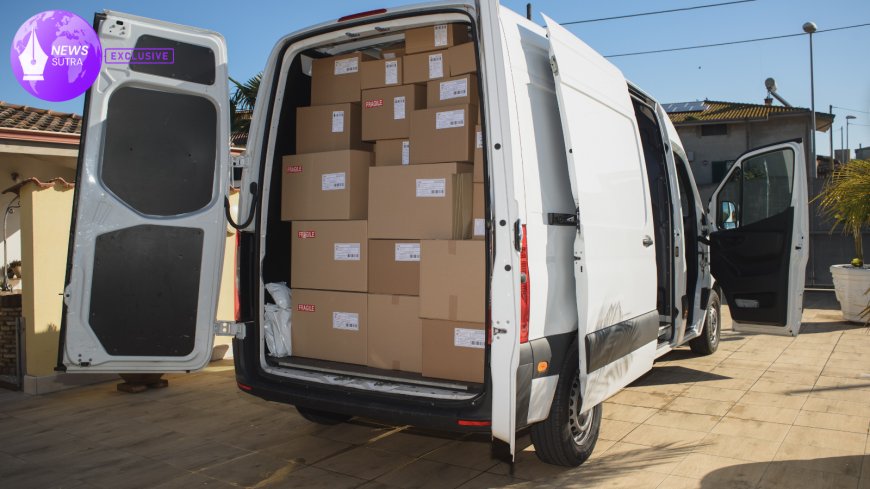Postal Gridlock: How Trump’s New Duties Are Freezing Global Mail and Undermining E-Tailers
Import duties under President Trump’s trade policy are disrupting global postal flows in August 2025. Small businesses report delayed shipments, rising costs, and e-commerce setbacks as international mail struggles to adapt.

By August 29, 2025, the U.S. will end its long-standing “de minimis” tariff exemption on packages valued under $800—a move enacted under President Trump’s recent policy change. This step has triggered an international postal freeze, with major postal services suspending shipments due to uncertainty around importing duties and compliance procedures Financial TimesThe Washington Post. In this analysis, we trace disrupted shipping logs, spotlight hard-hit small businesses depending on cross-border e-commerce, and explore viable workarounds.
1. What’s Going Wrong—Across Shipping Logs & Mailflows
-
Sudden Halt: From August 29, 2025, postal networks across countries including the UK, Germany, France, Italy, Sweden, and Singapore have suspended non-essential exports to the U.S., citing unclear customs protocols and duty calculations New York PostAP NewsThe Washington Post.
-
Scale of Disruption: In 2024 alone, over 1.3 billion de minimis shipments crossed borders into the U.S.—some 60% from China Financial TimesAxios.
-
Domestic Logjams: Logistics providers report mounting backlogs at entry points like JFK, unable to process residues of low-value packages without proper tariff infrastructure Reuters.
2. Real Retailers, Real Pain: Stories from Small Businesses
Case Study—Elle & Co. (UK): A boutique jewelry brand shipping small-value orders (typically under $50) to U.S. customers saw all outbound mail halted mid-August, locking away roughly $45,000 in goods and eroding customer trust with delayed deliveries.
Case Study—TechGadgets (Australia): A mid-sized online retailer of low-cost accessories recorded 72% of its U.S. shipments flagged or returned in the first week, forcing the business to divert inventory to domestic distribution—tripling delivery times.
Why It Matters: Many such businesses rely on affordable direct-to-consumer shipping—making this disruption not only a logistical headache but a potential existential threat.
3. Unpacking the Costs: Logistics and Inventory Impact
An academic model shows that rising tariffs and delivery delays—averaging 21 days—resulted in a 2.6% drop in output and a 1.8% rise in prices between 2018 and 2024 arXiv.
When paired with new duty complexities, these delays can:
-
Force firms to hold weeks of extra inventory,
-
Escalate operational costs sharply,
-
Erode margins, especially for businesses operating on tight budget structures.
4. Workarounds and Adaptation Strategies
a) Shift to Express Couriers: Companies like DHL and FedEx have resumed selective U.S. service, offering customs clearance support—albeit at a premium rate New York PostVogue Business.
b) Prepaid Duties in Checkout: Sellers should offer “Delivered Duty Paid” (DDP) options, smoothing the customer experience and speeding parcel acceptance.
c) Reallocation Strategy: Temporarily redirecting goods to regional distribution centers (e.g., Mexico or Canada) avoids outright shipment suspensions.
d) Customer Transparency: Inform buyers proactively about delays and the tariff change, to preserve trust and reduce cancellation rates.
5. Why This Policy Change Hits Hard
Experts warn that sweeping duties without incremental guidance can devastate small firms:
| Impact Factor | Effect on Small Businesses |
|---|---|
| Sudden Policy Shift | Logistical paralysis |
| Lack of Customs Clarity | Returns, rejections, hold-ups |
| Thin Margins | Unsustainable duty cost load |
Previous analyses show that tariffs often force price hikes, push narrow-margin retailers to recap strategies, and destabilize entire supply chains ForbesBigCommercesbc.senate.govU.S. Chamber of Commerce.
Conclusion
As of August 2025, Trump’s revocation of the de minimis exemption is causing an unprecedented global postal slowdown. Small businesses reliant on low-value overseas sales are caught in this policy squeeze—facing delays, increased costs, and survival challenges. While express couriers, duty prepayments, and inventory rerouting offer some relief, only clear, calibrated policy could secure future reliability. The window for adaptation is narrow—and the cost of delay, potentially irreversible.











